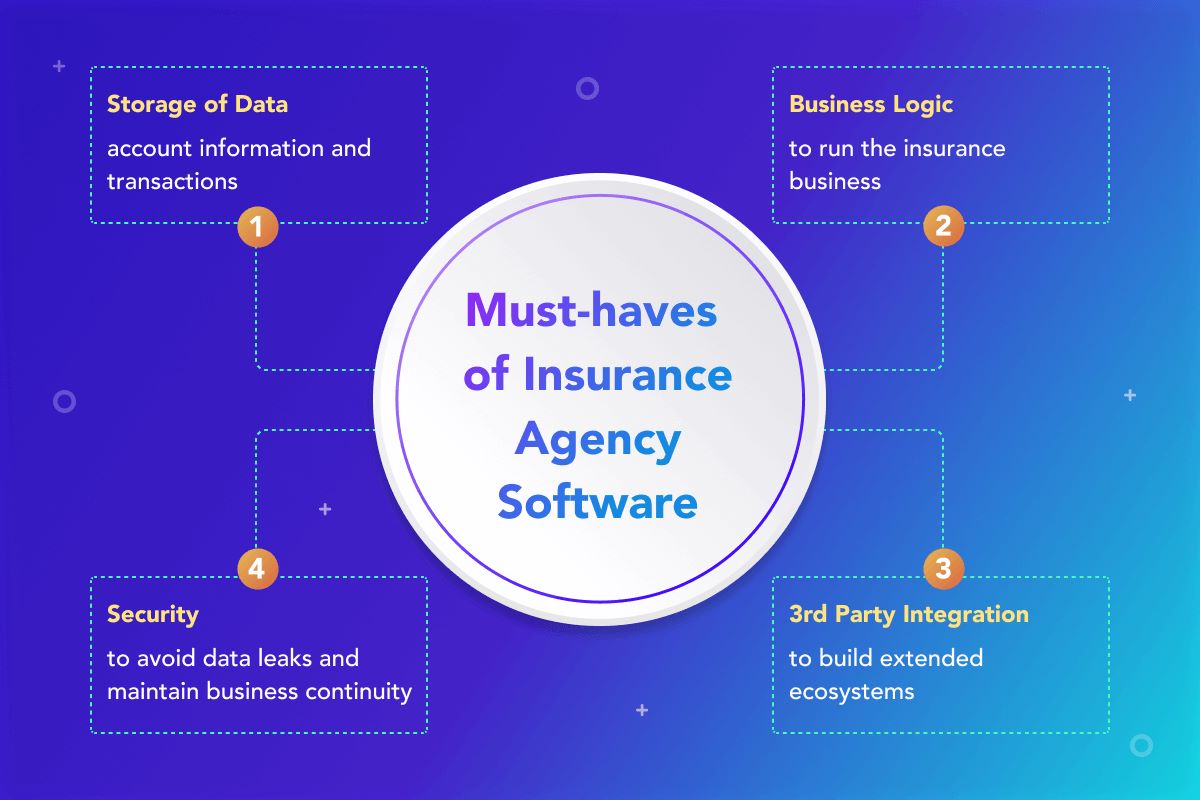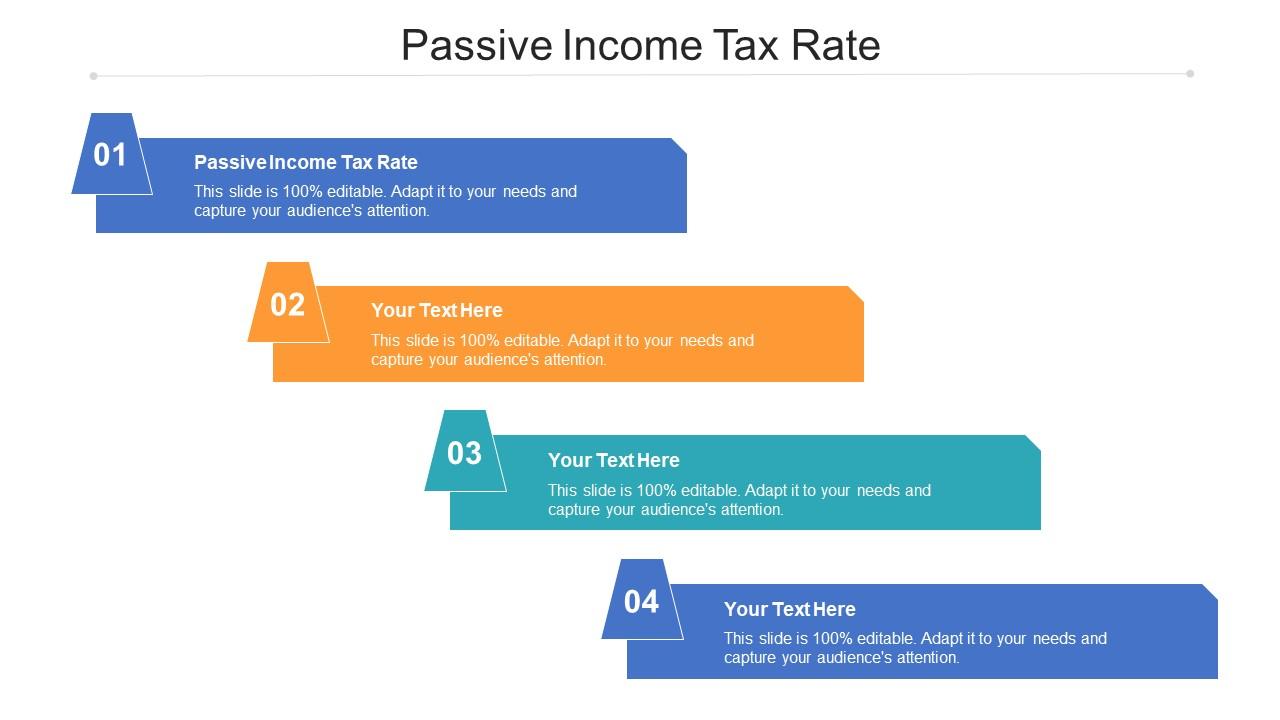

Finance
How To Keep Records For A Small Business
Published: November 25, 2023
Learn how to effectively manage your small business finance with our step-by-step guide. Keep accurate records and stay on top of your finances for maximum success.
(Many of the links in this article redirect to a specific reviewed product. Your purchase of these products through affiliate links helps to generate commission for LiveWell, at no extra cost. Learn more)
Table of Contents
- Introduction
- Importance of Record Keeping
- Types of Records to Keep
- Financial Records
- Sales and Inventory Records
- Employee Records
- Tax Records
- Customer and Vendor Records
- Record Keeping Systems and Tools
- Choosing the Right Method for Your Business
- Organizing and Maintaining Records
- Retention and Disposal of Records
- Hiring Professional Help for Record Keeping
- Conclusion
Introduction
Welcome to the world of small business ownership! As an entrepreneur, you have embarked on an exciting journey filled with challenges and opportunities. One of the key aspects of running a successful small business is maintaining accurate and organized records. Effective record keeping is crucial for a variety of reasons, including financial management, compliance with legal and tax requirements, and making informed business decisions.
Accurate and up-to-date records provide a snapshot of your business’s financial health, allowing you to monitor cash flow, track expenses, and assess profitability. In addition, maintaining organized records helps you comply with legal obligations and tax regulations, reducing the risk of penalties or audits. Moreover, proper record keeping allows you to analyze your business performance, identify trends, and make data-driven decisions to drive growth and success.
Keeping thorough and well-organized records not only benefits your business internally but also contributes to building trust among stakeholders such as investors, lenders, and potential partners. It demonstrates your commitment to financial transparency, accountability, and professionalism.
While the thought of record keeping may seem daunting, especially for busy small business owners who have multiple hats to wear, it doesn’t have to be overwhelming. With a solid understanding of the types of records to keep, the tools available, and best practices for organizing and maintaining records, you can establish an efficient record keeping system for your business.
In this article, we will explore the importance of record keeping and provide guidance on the types of records to maintain. We will also discuss various record keeping systems and tools, as well as offer tips on organizing and maintaining your records effectively. By the end, you will have a clear understanding of how to keep records for your small business and the benefits it can bring.
Importance of Record Keeping
Record keeping is the backbone of a successful small business. It not only helps you stay organized but also offers numerous benefits for your financial management, legal compliance, and overall business operations. Let’s delve into the importance of record keeping in more detail below.
1. Financial Management: Accurate and detailed financial records are essential for managing your business’s finances effectively. By keeping track of your income, expenses, and cash flow, you can monitor your financial health, identify areas where you need to cut costs or allocate resources, and make informed decisions about investments and growth strategies. Good record keeping enables you to create reliable financial statements and tax reports, which are crucial for securing loans, attracting investors, and complying with accounting standards.
2. Compliance with Legal and Tax Requirements: Proper record keeping ensures that you meet all legal and tax obligations. It allows you to keep track of transactions, invoices, receipts, and contracts, which may be required in the event of an audit or legal dispute. It helps you accurately report your income, calculate tax deductions, and claim eligible expenses. Maintaining organized records also helps you comply with employment laws, such as keeping employee records and paying payroll taxes.
3. Informed Decision Making: Detailed business records provide valuable insights that can guide your decision-making process. By analyzing sales trends, customer preferences, and expense patterns, you can make data-driven decisions to improve your products or services, target your marketing efforts, and optimize your operations. Records also help you evaluate the success of your marketing campaigns, identify your best-performing products or services, and make strategic adjustments to enhance your profitability.
4. Building Trust and Credibility: Transparent and well-maintained records demonstrate your professionalism and build trust among stakeholders, including lenders, investors, and potential partners. A robust record keeping system enhances your credibility, signaling that you are responsible, reliable, and committed to running your business effectively. It also helps you establish and maintain good relationships with suppliers, customers, and employees, as it enables you to track orders, payments, and communication history.
5. Efficient Business Operations: Maintaining organized records streamlines your day-to-day business operations. By having easy access to information such as customer details, inventory levels, and vendor contracts, you can respond promptly to inquiries, manage your inventory efficiently, and maintain strong relationships with your suppliers. Efficient record keeping also saves you time and effort when it comes to filing taxes, preparing financial reports, and resolving billing disputes, allowing you to focus on growing your business.
As you can see, record keeping is not just a necessary administrative task but a strategic tool for managing and growing your small business. It empowers you to make informed decisions, comply with legal requirements, and build credibility. With the right systems and practices in place, record keeping becomes a valuable asset that contributes to your business’s success.
Types of Records to Keep
In order to maintain accurate and comprehensive records for your small business, it’s important to identify and categorize the different types of records that should be kept. While the specific records required may vary depending on your industry and local regulations, here are some common types of records that most small businesses need to keep:
- Financial Records: Financial records are crucial for monitoring the financial health of your business. This includes income statements, balance sheets, and cash flow statements. In addition, you should keep copies of all invoices, receipts, and expense reports to track your income and expenditure. Bank statements, credit card statements, and canceled checks are also essential records to verify your business transactions.
- Sales and Inventory Records: Keeping detailed records of your sales is essential for tracking revenue and analyzing customer behavior. This includes sales receipts, invoices, and sales reports. It’s also important to maintain records of your inventory, including purchase orders, supplier invoices, and inventory counts. These records help you manage stock levels, identify popular products, and ensure you have adequate supply to meet customer demands.
- Employee Records: If you have employees, you must keep records related to their employment. This includes copies of employment contracts, payroll records, time sheets, and tax forms such as W-4 and I-9. It’s also important to maintain records of any employee benefits, such as healthcare plans or retirement accounts.
- Tax Records: Proper record keeping is crucial for tax compliance. You should keep all records related to your business taxes, including tax returns, receipts, and any supporting documentation. It’s recommended to retain tax records for at least seven years to ensure you can provide documentation in case of an audit.
- Customer and Vendor Records: It’s important to maintain a database or CRM system to keep track of customer information, including contact details, purchasing history, and any communication records. This enables you to provide personalized service and maintain good relationships with your customers. Similarly, keeping records of your vendors, including contracts, invoices, and communications, helps to ensure smooth transactions and effective supplier management.
These are just a few examples of the types of records that small businesses need to keep. Depending on your industry and specific business needs, you may have additional records to maintain, such as permits and licenses, insurance policies, intellectual property documentation, and contracts with partners or subcontractors. It’s important to consult with professionals, such as accountants or legal advisors, to ensure you are aware of all the necessary records and legal requirements for your business.
Remember, accurate record keeping is the foundation for financial management, tax compliance, and efficient operations. By maintaining organized records across these different categories, you’ll have the information you need to make informed decisions, comply with regulations, and ensure the long-term success of your small business.
Financial Records
Financial records are a vital component of effective record keeping for small businesses. These records provide valuable insights into the financial health of your business and help you make informed decisions about managing your finances. Here are some key financial records to keep:
- Income Statements: Also known as profit and loss statements, income statements provide a summary of your business’s revenues, expenses, and net income or loss over a specific period. This record helps you track your profitability and identify areas where expenses can be reduced or revenues can be increased.
- Balance Sheets: A balance sheet is a snapshot of your business’s financial position at a specific point in time. It includes assets (such as cash, inventory, and equipment), liabilities (such as loans and accounts payable), and equity (owner’s investment and retained earnings). This record helps you assess your business’s financial stability and solvency.
- Cash Flow Statements: Cash flow statements track the movement of cash in and out of your business over a given period. It helps you analyze the sources and uses of cash, ensuring that you have enough liquidity to meet your financial obligations and make necessary investments.
- Invoices and Receipts: Keeping copies of all invoices and receipts is crucial for tracking your income and expenses. Invoices are records of sales transactions, while receipts provide proof of payment for expenses. These records help you reconcile your sales and expenses, ensuring accurate financial reporting.
- Bank Statements: Regularly reviewing your bank statements is essential for reconciling your accounts, tracking deposits and withdrawals, and identifying any discrepancies. It provides a clear overview of your cash position and helps you detect any fraudulent activities or errors in your financial transactions.
- Canceled Checks and Account Statements: Maintaining copies of canceled checks and account statements is important for verifying payments made by your business. It serves as evidence of financial transactions and ensures you can provide documentation if needed.
Effective record keeping also involves creating a system for organizing and storing these financial records. Whether you choose digital or physical storage, it’s important to keep your records safe, secure, and accessible. Make sure to label and categorize your records in a way that makes sense to you and aligns with your accounting practices.
Keeping accurate financial records allows you to analyze your business’s performance, identify areas for improvement, and make informed financial decisions. It also helps during tax season by providing the necessary documentation for preparing your tax returns and supporting any deductions you claim.
Lastly, it’s a good practice to consult with a qualified accountant or financial advisor to ensure you are maintaining your financial records correctly. They can provide guidance on best practices, accounting software, and help you interpret the data in your financial records to make sound financial decisions for your small business.
Sales and Inventory Records
Accurate and organized sales and inventory records are essential for managing and tracking your business’s sales and inventory levels. These records provide valuable insights into customer behavior, product performance, and help you make informed decisions to optimize your sales and inventory management. Here are some key sales and inventory records to keep:
- Sales Receipts: Sales receipts are documents that provide proof of a sale. They typically include details such as the date of the transaction, items sold, quantities, prices, and payment method. Keeping a record of sales receipts helps you track your sales revenue, identify popular products, and analyze sales patterns over time.
- Invoices: Invoices are similar to sales receipts but are used for sales that involve credit or payment terms. They provide a detailed breakdown of the transaction, including the products or services sold, quantities, prices, terms of payment, and any applicable discounts or taxes. Invoices help you maintain a record of outstanding payments and customer credit history.
- Sales Reports: Regularly generating sales reports allows you to analyze your sales performance, compare results over different time periods, and uncover trends. Sales reports can include metrics such as total sales revenue, number of units sold, average order value, and sales by product, customer, or region. These reports help you make data-driven decisions to improve your sales strategies and target your marketing efforts effectively.
- Inventory Counts: Conducting regular inventory counts and keeping records of your stock levels is crucial for managing your inventory efficiently. Inventory counts involve physically counting the quantity of each product in your inventory and comparing it to the recorded quantity in your records. This ensures that your records accurately reflect your actual stock levels, helping prevent stockouts or overstocking.
- Purchase Orders and Supplier Invoices: Maintaining records of your purchase orders and supplier invoices helps you track your purchases, manage your supplier relationships, and ensure accurate financial reporting. Purchase orders detail the items, quantities, prices, and terms agreed upon with your suppliers, while supplier invoices provide documentation of the actual charges and payments made. These records help you reconcile your inventory, track costs, and verify payments to suppliers.
Implementing a robust point-of-sale (POS) system or an inventory management software can greatly simplify the process of recording and analyzing sales and inventory data. These tools can automate tasks such as generating sales receipts, tracking inventory levels, and producing sales reports. They also help you identify low-selling items, forecast demand, and streamline the entire sales and inventory management process.
By keeping accurate sales and inventory records, you gain insights into your best-selling products, identify slow-moving inventory, and make informed decisions about purchasing, pricing, and marketing strategies. These records also provide valuable documentation for accounting purposes, audits, and tax reporting.
Remember, timely and accurate sales and inventory records are vital to running a successful small business. Regularly reviewing and analyzing this data allows you to optimize your sales performance, manage your inventory effectively, and ensure customer satisfaction.
Employee Records
Maintaining thorough and up-to-date employee records is essential for managing your workforce effectively and complying with legal requirements. Employee records provide valuable information about your employees’ employment history, performance, compensation, and benefits. Here are some key employee records to keep:
- Employment Contracts: Employment contracts outline the terms and conditions of employment between you and your employees. They typically include details such as job responsibilities, working hours, compensation, benefits, and termination clauses. Keeping a copy of each employee’s signed employment contract ensures that both parties are aware of their rights and responsibilities.
- Payroll Records: Payroll records are essential for accurately calculating and documenting employee compensation. This includes records of wages, salaries, bonuses, commissions, and any deductions or contributions made. Payroll records also include time sheets or attendance records, which help track employee hours worked and ensure compliance with labor laws.
- Tax Forms: Employers are required to collect tax-related forms from their employees. This includes forms such as W-4 (Employee’s Withholding Certificate) and I-9 (Employment Eligibility Verification). These forms provide information necessary for withholding the correct amount of taxes from employees’ wages and verifying their eligibility to work in the United States.
- Performance Reviews and Disciplinary Records: Keeping records of performance reviews and disciplinary actions helps track employees’ performance, behavior, and any issues or improvements discussed. These records are valuable when making decisions regarding promotions, terminations, or employee development opportunities.
- Leaves of Absence and Time-Off Requests: Maintaining records of employees’ leaves of absence, such as sick leave, vacation time, and parental leave, helps track their time off and ensures compliance with labor laws. It also helps manage employee schedules and plan for adequate staffing coverage.
It is important to handle employee records with confidentiality and in compliance with applicable privacy laws. Store these records securely, whether in physical or digital format, with restricted access to authorized personnel only.
In addition to the individual employee records, it’s important to keep summary reports or employee databases that contain key information about all employees within your organization. This includes contact details, job titles, employment dates, pay rates, and any relevant certifications or licenses.
Proper record keeping of employee information not only helps manage day-to-day HR tasks but also ensures compliance with legal requirements. Accurate employee records demonstrate fair employment practices, support performance evaluations, and enable you to respond effectively to any legal or regulatory inquiries or audits.
It’s worth considering implementing HR software or systems that can help streamline employee record keeping, automate payroll processes, track time-off requests, and securely store employee information. These systems can save time, reduce errors, and improve overall HR efficiency.
Remember, maintaining comprehensive and organized employee records is crucial for ensuring a smooth and compliant workforce management process. It helps protect both the rights of your employees and the interests of your business.
Tax Records
Maintaining accurate and well-organized tax records is crucial for small businesses to ensure compliance with tax laws and facilitate efficient tax preparation. These records serve as documentation of your business’s financial transactions and support the information reported on your tax returns. Here are some key tax records to keep:
- Tax Returns: Retain copies of all filed tax returns, including federal, state, and local tax returns. These documents provide a summary of your business’s income, deductions, and tax liabilities for a specific tax year. Tax returns should be kept for at least seven years, as this is the general period during which the IRS may request past returns.
- Income Documentation: Keep records of all income sources, including sales receipts, invoices, 1099-MISC forms (for payments made to independent contractors), and any other documentation that verifies the income reported on your tax returns. These records help substantiate your income and prevent any discrepancies in case of an audit.
- Expense Documentation: Maintain detailed records of all business expenses, such as receipts, invoices, and canceled checks. This includes expenses related to supplies, equipment, utilities, rent, advertising, professional fees, and employee wages. Ensuring accurate documentation of expenses is vital for claiming deductions and reducing your taxable income.
- Bank Statements and Financial Statements: Keep copies of your business’s bank statements, credit card statements, and financial statements. These records provide supporting documentation for the income and expenses reflected on your tax returns. They help reconcile your financial records and ensure accurate reporting.
- Asset and Depreciation Records: Maintain records of any assets purchased for your business, such as equipment, vehicles, or property. These records should include purchase receipts, depreciation schedules, and documentation of any improvements or disposals. Properly tracking and documenting assets and depreciation is essential for calculating deductions and capital gains/losses.
In addition to these records, it’s important to keep track of any tax-related correspondence, notices, or audit records. This includes letters or notices from tax authorities, correspondence with accountants or tax advisors, and records of any audits or examinations conducted on your business’s tax returns.
Organizing your tax records in a systematic manner will not only facilitate tax preparation but also make it easier to respond to inquiries or audits. Consider using cloud storage or digital platforms to securely store your records, ensuring accessibility and protection against physical damage or loss.
Consulting with a qualified accountant or tax advisor can provide valuable guidance on proper record keeping and tax compliance specific to your business. They can help ensure you are keeping the necessary records, claiming eligible deductions, and meeting any additional reporting requirements applicable to your industry or jurisdiction.
Proper record keeping reduces the stress and potential complications of tax time, helps you take advantage of available deductions, and ensures compliance with tax laws. By maintaining organized and accurate tax records, you can efficiently prepare your tax returns, minimize the risk of audits, and have peace of mind knowing that your tax obligations are being fulfilled.
Customer and Vendor Records
Maintaining comprehensive and up-to-date customer and vendor records is vital for small businesses. These records provide valuable information about your business relationships, allowing you to effectively manage interactions with customers and vendors. Here are the key types of records to keep for both customers and vendors:
Customer Records:
- Contact Information: Keep records of customer contact information, including names, phone numbers, email addresses, and mailing addresses. This enables you to easily communicate with your customers, send marketing materials, and provide exceptional customer service.
- Purchasing History: Maintain detailed records of each customer’s purchasing history, including transaction dates, products or services purchased, quantities, and prices. This information helps you understand customer preferences, identify repeat customers, and tailor your marketing strategies to specific segments.
- Communications: Keep a record of all communication with customers, such as emails, phone calls, or meeting notes. This helps you provide personalized and seamless customer service, as well as resolve any issues or disputes that may arise.
- Payment Records: Track and document customer payments, including invoices, receipts, and any outstanding balances. Properly recording payments ensures accurate accounting and helps prevent any discrepancies in financial reporting.
Vendor Records:
- Contact Information: Maintain a record of vendor contact information, including names, phone numbers, email addresses, and mailing addresses. This allows for efficient communication and facilitates timely ordering and delivery of goods or services.
- Contracts and Agreements: Keep copies of any contracts or agreements with vendors, outlining terms, pricing, and delivery schedules. These records serve as a reference in case of any discrepancies or disputes that may arise.
- Invoices and Payment Records: Retain copies of vendor invoices and records of payments made. This ensures accurate financial reporting, aids in reconciling accounts payable, and allows for efficient resolution of any billing inquiries or discrepancies.
- Communication and Correspondence: Keep records of all communication with vendors, including emails, purchase orders, and any negotiations or discussions related to the products or services provided. These records provide a history of your business relationship and help ensure smooth interactions with vendors.
Properly organizing customer and vendor records is essential for efficient operations and building strong business relationships. Utilizing customer relationship management (CRM) software or vendor management systems can help streamline record keeping, centralize information, and enhance communication and collaboration with customers and vendors.
By maintaining comprehensive customer records, you can provide personalized service, anticipate customer needs, and build long-term loyalty. Proper vendor record keeping allows for effective supplier management, ensures timely deliveries, and facilitates prompt resolution of any issues or concerns.
Remember, customer and vendor records play a crucial role in understanding and managing your business relationships. By maintaining accurate and up-to-date records, you can optimize customer interactions, enhance vendor partnerships, and contribute to the overall success of your small business.
Record Keeping Systems and Tools
Choosing and implementing the right record keeping systems and tools is essential for maintaining accurate, organized, and accessible records for your small business. These systems and tools help streamline the record keeping process, increase efficiency, and ensure compliance with legal and regulatory requirements. Here are some commonly used record keeping systems and tools:
1. Accounting Software: Accounting software, such as QuickBooks, Xero, or FreshBooks, is a valuable tool for managing your financial records. These software solutions allow you to track income and expenses, generate financial statements, manage invoicing and bill payments, and streamline tax preparation. They often offer features like bank integration, automatic transaction categorization, and financial reporting capabilities.
2. Spreadsheets: Spreadsheets, such as Microsoft Excel or Google Sheets, are versatile tools for organizing and tracking various types of business records. They can be used for tasks like budgeting, inventory management, sales tracking, and employee records. Spreadsheets provide a customizable and cost-effective solution for businesses that prefer a more hands-on approach to record keeping.
3. Customer Relationship Management (CRM) Systems: CRM systems, such as Salesforce, HubSpot, or Zoho CRM, are designed to manage customer information, interactions, and relationships. These systems help centralize and organize customer records, track communication history, manage sales leads, and provide insights for targeted marketing campaigns.
4. Document Management Systems (DMS): DMS platforms, like Google Drive, Microsoft SharePoint, or Dropbox, provide a centralized location for storing and managing all types of business documents. They offer features such as document categorization, version control, access control, and collaboration tools. DMS systems ensure secure storage, easy retrieval, and efficient sharing of important records across your organization.
5. Cloud Storage Solutions: Cloud storage solutions, such as Google Drive, Dropbox, or Microsoft OneDrive, offer secure and accessible storage for your digital files. Storing your records in the cloud provides the advantage of remote access, automatic backups, and seamless collaboration across devices and locations. This is particularly beneficial for businesses with remote teams or those who want to reduce physical document storage.
6. Physical Filing Systems: For businesses that prefer physical records, establishing a well-organized filing system is crucial. This includes properly labeled folders, cabinets, and storage boxes for easy retrieval and protection against damage or loss. Physical records should be sorted and stored in a logical order, such as by category, date, or alphabetically.
When choosing a record keeping system or tool, consider factors such as the specific needs of your business, budget constraints, user-friendliness, scalability, and integration capabilities. It’s recommended to consult with a professional, such as an accountant or IT specialist, to understand the best options that align with your business requirements.
Regardless of the system or tool you choose, it’s important to establish clear protocols and procedures for how records will be organized, stored, and accessed. Regularly train employees on record keeping processes, ensure backups are performed regularly, and regularly assess the effectiveness of your chosen systems and tools.
Remember, the right record keeping systems and tools can significantly streamline your business operations, improve compliance, and enhance productivity. Investing time and resources in selecting and implementing the appropriate systems and tools will contribute to the accuracy, accessibility, and efficiency of your record keeping processes.
Choosing the Right Method for Your Business
When it comes to record keeping for your small business, choosing the right method is crucial for accuracy, efficiency, and compliance. The method you choose will depend on various factors, including the nature of your business, the volume of records, available resources, and your comfort level with technology. Here are some key considerations to help you choose the right method for your business:
1. Business Needs: Consider the specific record keeping needs of your business. Do you primarily need to track financial transactions, sales, inventory, or employee information? Understanding your specific requirements will guide you in selecting systems and tools that cater to those needs.
2. Complexity and Scalability: Consider the complexity of your record keeping needs, both now and in the future. If your business is small and the volume of records is relatively low, simpler tools like spreadsheets or basic accounting software may suffice. However, if your business is growing rapidly or has complex operations, you may need more sophisticated systems like cloud-based software or specialized databases.
3. Budget and Resources: Assess your budget and available resources for record keeping. Some systems and tools require a significant financial investment both in terms of software licenses and training, while others may be more cost-effective but require more manual effort. Choose a method that strikes the right balance between affordability and functionality for your business.
4. Technology Proficiency: Consider your comfort level with technology and the proficiency of your team. If you and your team are tech-savvy, using accounting software, CRM systems, or cloud-based tools may be a good fit. However, if you have limited tech expertise, simpler tools like spreadsheets or physical filing systems may be more suitable. It’s important to choose a method that you and your team can easily understand and utilize.
5. Legal and Regulatory Requirements: Familiarize yourself with the legal and regulatory requirements specific to your industry and location. Some industries have specific record keeping obligations, such as healthcare records for medical practices or client confidentiality for legal firms. Ensure that the method you choose meets these requirements to avoid any legal issues or penalties.
6. Efficiency and Integration: Evaluate how well the chosen method integrates with other systems and processes in your business. For example, if you already use accounting software, it may be easier to choose a record keeping method that integrates with that software, reducing manual data entry and improving data accuracy. Look for systems and tools that provide seamless integration and streamline workflows.
7. Flexibility and Accessibility: Consider the flexibility and accessibility of the record keeping method. Can you access your records remotely? Can multiple users access and collaborate on the records simultaneously? This is especially important for businesses with remote teams or those that require real-time access to records.
Ultimately, the right method for your business will depend on a careful evaluation of your needs, resources, and preferences. It’s important to take the time to research and test different options before making a decision. It may also be beneficial to consult with professionals, such as accountants, IT specialists, or industry experts, who can provide guidance based on your specific business requirements.
Remember, record keeping is an ongoing process, and it’s important to regularly evaluate and update your chosen method as your business evolves. By choosing the right method and continually maintaining accurate and organized records, you’ll be well-equipped to make informed decisions, comply with regulations, and drive the success of your small business.
Organizing and Maintaining Records
Once you have established a record keeping system and chosen the appropriate tools, it is important to focus on organizing and maintaining your records effectively. Keeping your records organized ensures easy accessibility, reduces the risk of loss or damage, and enhances efficiency in your day-to-day operations. Here are some key practices to help you effectively organize and maintain your records:
1. Establish a Filing System: Whether you manage physical or digital records, establish a systematic filing system. Create clear and consistent categories for organizing your records, such as by type (financial records, sales records, employee records), date, or alphabetical order. Label your folders, files, or digital folders accordingly, making it easy to locate specific records when needed.
2. Consistent Record Naming and Version Control: Develop a standardized naming convention for your records, especially in digital formats. This ensures that files are named consistently and can be easily identified and retrieved. Consider incorporating relevant information such as date, project name, or document type into the file names. Additionally, maintain version control to avoid confusion or overwriting of important documents.
3. Regularly Back Up Your Records: Implement a regular backup system to protect your records from potential loss or damage. This can involve using cloud storage solutions, external hard drives, or offsite backups. Regularly test your backup system to ensure it is functioning properly and that your records can be restored if necessary.
4. Create a Retention Schedule: Develop a retention schedule outlining how long specific records should be retained. This schedule should be aligned with legal and industry requirements. Some records may need to be retained for a certain number of years, while others may have no expiration date. Regularly review your retention schedule to ensure compliance and dispose of records that are no longer required.
5. Implement Access Control: Protect the confidentiality and security of your records by implementing access control measures. Limit access to sensitive information to authorized personnel only, and establish procedures for granting, revoking, and reviewing access privileges. This ensures that records are accessed only by those who need them and helps prevent unauthorized use or disclosure of sensitive information.
6. Regularly Audit and Update Records: Conduct audits of your records periodically to ensure accuracy, completeness, and compliance. This involves reviewing your records, identifying any discrepancies or inconsistencies, and taking necessary steps to rectify them. Regularly update records to reflect any changes or new information promptly.
7. Train and Educate Employees: Provide training and guidelines to employees on proper record keeping practices. Ensure they understand the importance of record keeping, their responsibilities, and the procedures to follow. Regularly communicate the record keeping policies and expectations to maintain consistency and adherence across your organization.
By implementing these practices, you can maintain well-organized records that are easily accessible, secure, and compliant. This helps streamline your operations, enables efficient decision-making, and ensures that you have the necessary documentation to meet legal and regulatory requirements.
Remember, record keeping is an ongoing process, and dedicating time and effort to organizing and maintaining your records is crucial. Stay consistent, review and update your practices as needed, and regularly assess the effectiveness of your record keeping system to ensure its continued efficiency and effectiveness.
Retention and Disposal of Records
Retention and proper disposal of records is a critical component of effective record keeping for small businesses. Developing a clear retention and disposal policy ensures that you retain records for the appropriate period of time required for legal and operational purposes, while also safeguarding sensitive information and preventing unnecessary clutter. Here are key considerations for retention and disposal of records:
1. Establish a Retention Schedule: Create a retention schedule that outlines how long specific types of records should be retained. This schedule should consider legal requirements, industry standards, and operational needs. Different record types may have varying retention periods. For instance, tax records are typically retained for seven years, while employee records may need to be kept for a specific period after their employment ends. Ensure your retention schedule is updated regularly to stay compliant.
2. Identify Records with Retention Requirements: Determine which records have legal or regulatory requirements for retention. These could include tax documents, contracts, licenses, employment records, and any records related to legal proceedings or claims. It’s crucial to understand the specific retention periods and requirements for each type of record to ensure compliance.
3. Secure Storage of Records: During the retention period, store records securely to protect sensitive information and maintain their integrity. If using physical storage, keep records in a dry, well-organized environment protected from fire, water damage, and unauthorized access. For digital records, employ strict access controls, encryption, and regular backups to ensure data security and accessibility.
4. Disposal Process: Once records reach the end of their retention period, establish a proper disposal process. This may involve shredding physical documents or implementing secure deletion methods for digital records. Ensure that the disposal method aligns with privacy laws and regulations to prevent unauthorized access or data breaches.
5. Document Disposal: Maintain a record of the disposal process, including details such as the records disposed of, the date of disposal, and the method used. This documentation serves as evidence of compliance with disposal regulations and provides an audit trail if ever needed.
6. Consider Legal and Operational Risks: When determining the retention period and disposal process, consider potential legal and operational risks. Keeping records longer than required may expose your business to potential liabilities in case of legal claims or investigations. On the other hand, disposing of records prematurely may lead to non-compliance with legal requirements, making it difficult to defend against legal disputes or audits.
7. Seek Professional Guidance: It is advisable to consult with legal and financial professionals to ensure compliance with retention and disposal requirements specific to your industry and location. They can provide guidance on regulatory obligations, data protection laws, and best practices to minimize risk and ensure proper record management.
By following a comprehensive retention and disposal policy, you not only adhere to legal requirements but also reduce the clutter and storage costs associated with retaining unnecessary records. Additionally, proper disposal of sensitive information mitigates the risk of data breaches or unauthorized access.
Remember to regularly review and update your retention schedule to align with changing regulations and business needs. By maintaining a consistent and well-documented process for retention and disposal, you can effectively manage your record lifecycle and ensure compliance while protecting sensitive information.
Hiring Professional Help for Record Keeping
Maintaining accurate and organized records is crucial for the success of your small business. However, the task of record keeping can be complex and time-consuming, especially as your business grows. Hiring professional help for record keeping can alleviate the burden and ensure that your records are maintained correctly. Here are some reasons why you might consider hiring professional assistance:
Expertise and Knowledge: Professional record keepers, such as bookkeepers or accountants, have the expertise and knowledge to navigate the complexities of record keeping. They are well-versed in the best practices, legal requirements, and industry-specific regulations regarding record management. Their knowledge ensures that your records are accurate, complete, and comply with applicable laws.
Time and Efficiency: Outsourcing record keeping to professionals allows you and your team to focus on core business activities. Professional record keepers have the skills and tools to efficiently organize, categorize, and maintain your records in a timely manner. This saves you valuable time and allows you to allocate resources effectively.
Accuracy and Compliance: Professional record keepers are well-versed in the intricacies of record accuracy and compliance. They understand the importance of maintaining accurate financial records, filing taxes correctly, and complying with legal and regulatory requirements. Their expertise reduces the risk of errors, penalties, and potential audits.
Access to Advanced Tools and Technology: Professional record keepers have access to advanced tools and technology that can streamline the record keeping process. They often use accounting software, document management systems, or customer relationship management platforms to automate tasks, improve accuracy, and enhance data security. This allows for more efficient record management and reduces the likelihood of data loss or unauthorized access.
Customized Solutions: Professional record keepers can tailor their services to meet your specific business needs. They can assess your record keeping requirements, determine the most appropriate record organization system, and create customized reports and analysis to provide insights into your business performance. Their personalized approach ensures that your record keeping processes align with your business goals and objectives.
Collaboration and Guidance: Hiring professional help fosters collaboration and provides guidance on record keeping practices. Professional record keepers can work collaboratively with you, your team, and other professionals, such as accountants or legal advisors, to ensure seamless coordination and accurate information exchange. They can also provide valuable advice on record storing, retention, and disposal, tailoring their recommendations to your specific industry and regulatory environment.
When hiring professional help for record keeping, consider engaging certified accountants, bookkeepers, or record keeping specialists with relevant experience in your industry. Seek recommendations and conduct interviews to ensure their expertise aligns with your business needs.
Remember, while hiring professional help for record keeping incurs some cost, the benefits far outweigh the expense. With professional assistance, you can rest assured that your records are accurate, well-maintained, and compliant, allowing you to focus on running and growing your business with peace of mind.
Conclusion
Effective record keeping is a critical aspect of running a successful small business. It enables you to maintain financial transparency, comply with legal requirements, make informed decisions, and build trust among stakeholders. By implementing the right record keeping systems, organizing and maintaining records accurately, and leveraging professional help when needed, you can maximize the benefits of record keeping.
Throughout this article, we explored the importance of record keeping and discussed various types of records that should be maintained, such as financial records, sales and inventory records, employee records, tax records, and customer and vendor records. We also highlighted the significance of choosing the right record keeping method for your business, considering factors such as your business needs, complexity, budget, and technological proficiency.
In addition, we discussed the best practices for organizing and maintaining records, emphasizing the establishment of a filing system, consistent record naming and version control, regular backups, and adherence to retention and disposal schedules. We also emphasized the benefits of hiring professional help for record keeping, such as their expertise, time efficiency, accuracy, and access to advanced tools and technology.
By implementing these recommendations, you can ensure that your record keeping processes are optimized, efficient, and compliant. This will provide you with accurate financial insights, enhance decision-making capabilities, minimize risks, and streamline your operations.
Remember, record keeping is an ongoing process that requires regular maintenance, periodic reviews, and adjustments as your business evolves. By dedicating time and resources to establish effective record keeping practices, you are investing in the long-term success and stability of your small business.
So, take the necessary steps today to implement or improve your record keeping systems. Whether you choose to utilize digital tools, engage professional assistance, or maintain physical records, the benefits of accurate and organized record keeping will have a positive impact on your business’s financial health, legal compliance, and overall operational efficiency.














